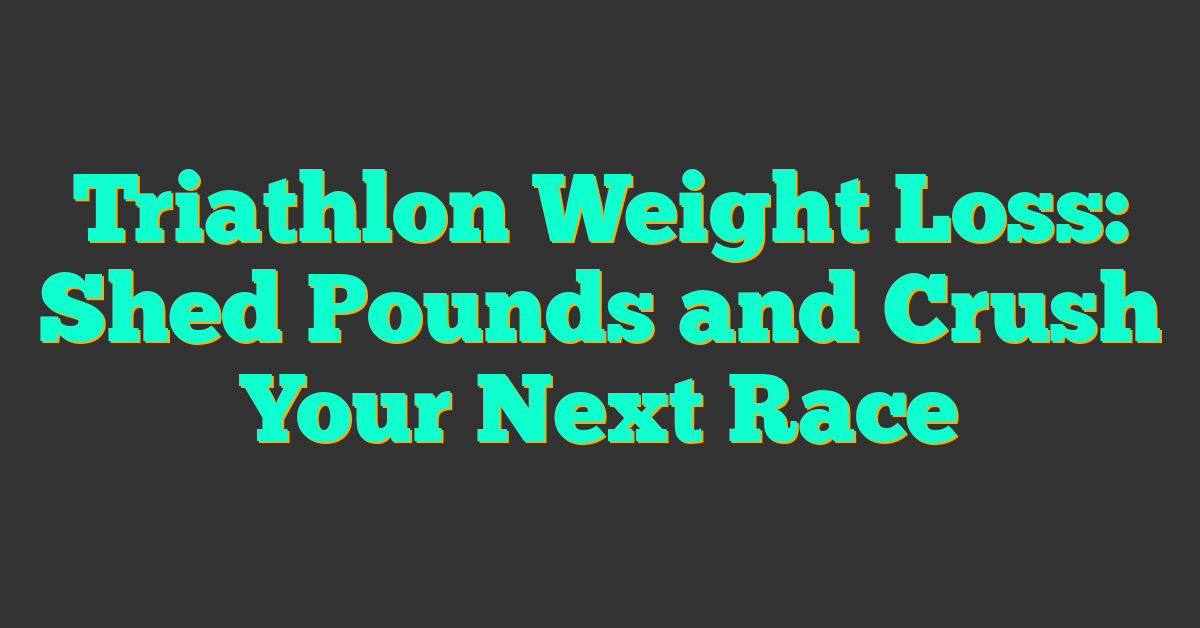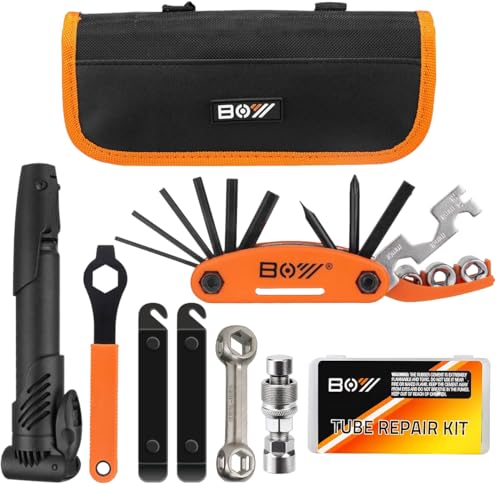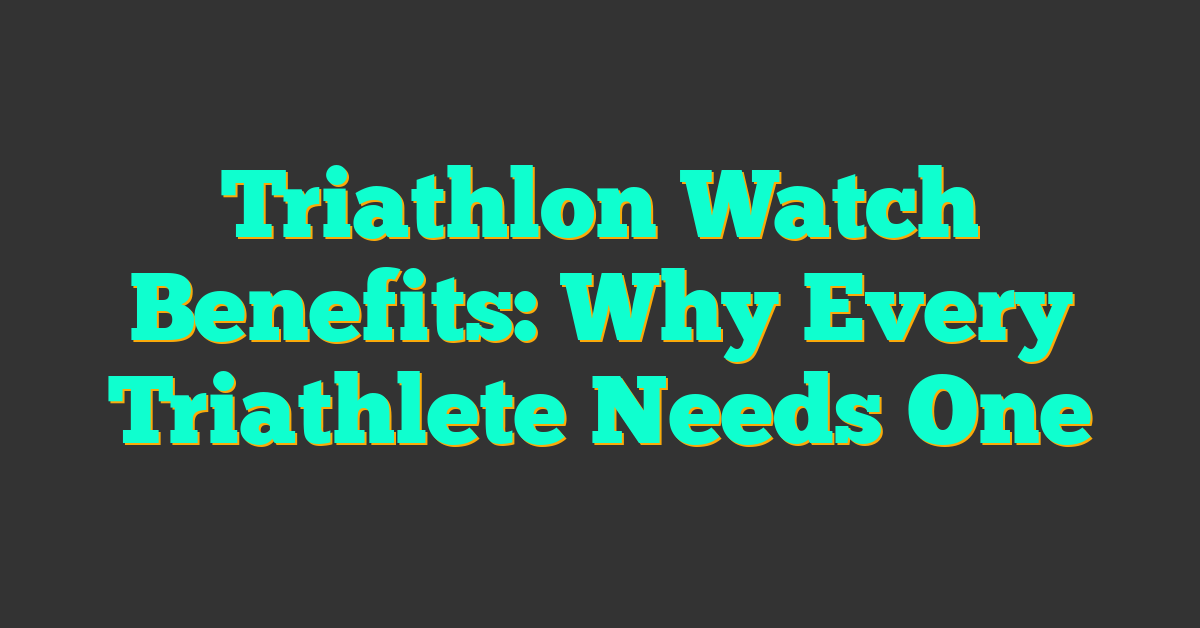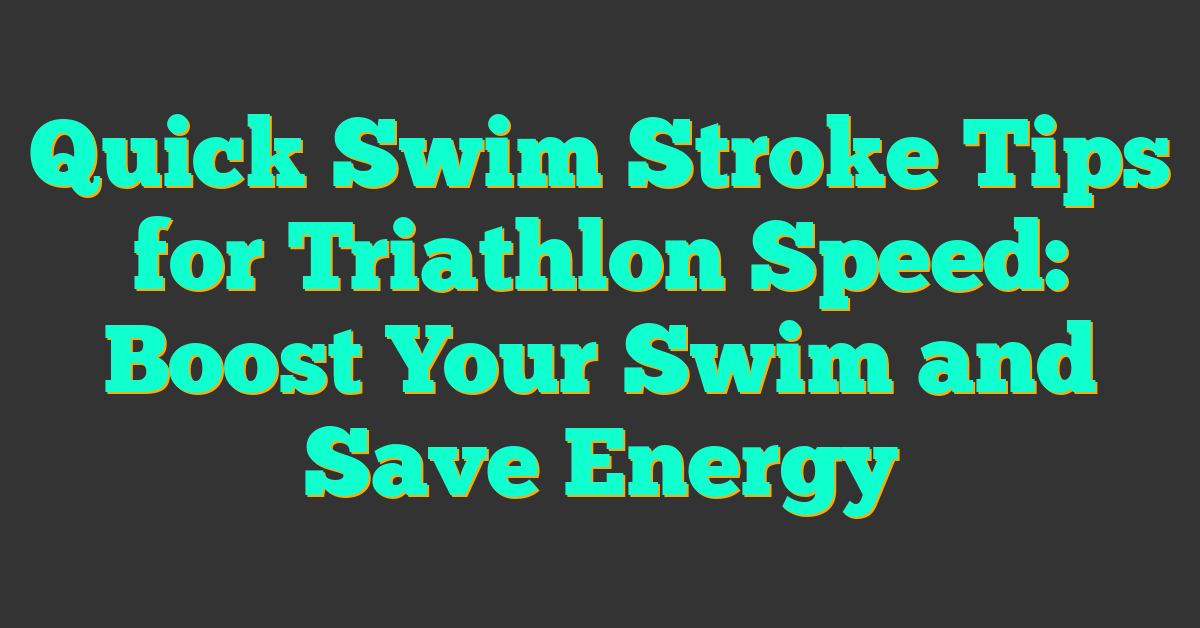If you’re a triathlete looking to lose weight, you’re not alone. Many athletes struggle with finding the right balance between optimal performance and maintaining a healthy body weight. Triathlon weight loss is a complex topic that involves a combination of training, nutrition, and lifestyle factors. In this article, we’ll explore the science behind triathlon weight loss and provide practical tips to help you achieve your goals.

Understanding Triathlon Weight Loss
To understand how triathlon weight loss works, it’s important to know the basics of energy balance. When you consume more calories than you burn, you gain weight. When you burn more calories than you consume, you lose weight. Triathlon weight loss involves creating a calorie deficit to promote fat loss while maintaining muscle mass and fueling your workouts.
Designing Your Triathlon Training Plan
Your training plan should be tailored to your individual needs and goals. It should include a combination of endurance, strength, and skill-specific workouts to help you improve your performance and burn calories. Incorporating high-intensity interval training (HIIT) and strength training can also help you increase your metabolism and burn more calories throughout the day.
Key Takeaways
- Triathlon weight loss involves creating a calorie deficit to promote fat loss while maintaining muscle mass and fueling your workouts.
- Your triathlon training plan should be tailored to your individual needs and goals and include a combination of endurance, strength, and skill-specific workouts.
- Optimizing your diet for performance and weight management, as well as incorporating recovery and lifestyle considerations, are also important factors in triathlon weight loss.
Understanding Triathlon Weight Loss
https://www.youtube.com/watch?v=MoLlaOpXJiI&embed=true

If you are a triathlete, then you know that weight loss can have a significant impact on your performance. However, losing weight too quickly or without proper nutrition can be dangerous. In this section, we will discuss the role of diet and nutrition and the importance of hydration in triathlon weight loss.
The Role of Diet and Nutrition
Diet and nutrition play a crucial role in triathlon weight loss. To lose weight, you need to create a calorie deficit by burning more calories than you consume. This can be achieved by reducing your calorie intake, increasing your physical activity, or a combination of both.
To reduce your calorie intake, you need to make sure that you are eating a healthy diet that is low in fat and high in protein and carbohydrates. You should aim to consume fewer calories than your body needs to maintain its weight. This can be achieved by reducing portion sizes, avoiding high-calorie foods, and choosing low-calorie alternatives.
Importance of Hydration
Hydration is also essential for triathlon weight loss. Water is essential for many bodily functions, including regulating body temperature, transporting nutrients and oxygen to cells, and removing waste products from the body.
To stay hydrated, you should aim to drink at least 8-10 glasses of water per day. You should also make sure that you are drinking water before, during, and after exercise to replace the fluids lost through sweat.
In conclusion, triathlon weight loss requires a combination of a healthy diet, physical activity, and hydration. By creating a calorie deficit through a healthy diet and increasing physical activity, you can lose weight safely and effectively. Additionally, staying hydrated is essential for maintaining good health and optimal performance.
Designing Your Triathlon Training Plan
https://www.youtube.com/watch?v=Dt-KdsbVRJQ&embed=true
When it comes to triathlon training, designing a plan that incorporates both strength and endurance training is crucial to your success. By balancing your training intensity and volume, you’ll be able to build the necessary muscle and endurance needed to complete a triathlon.
Incorporating Strength and Endurance
Strength training is an essential part of any triathlon training plan. By incorporating exercises that target your core, legs, and upper body, you’ll be able to build the necessary muscle needed to complete a triathlon. Some examples of strength training exercises include squats, lunges, push-ups, and pull-ups.
Endurance training is equally important. By incorporating exercises that target your cardiovascular system, such as running, swimming, and cycling, you’ll be able to build the necessary endurance needed to complete a triathlon. It’s important to gradually increase your endurance training volume over time to avoid injury and burnout.
Balancing Training Intensity
When it comes to triathlon training, balancing your training intensity is crucial. It’s important to avoid overtraining, as this can lead to injury and burnout. On the other hand, it’s also important to push yourself to your limits to build the necessary strength and endurance needed to complete a triathlon.
One way to balance your training intensity is to incorporate interval training into your workouts. By alternating between high-intensity and low-intensity exercise, you’ll be able to build endurance while also avoiding overtraining.
In conclusion, designing a triathlon training plan that incorporates both strength and endurance training while balancing training intensity is crucial to your success. By gradually increasing your training volume over time and pushing yourself to your limits, you’ll be able to build the necessary muscle and endurance needed to complete a triathlon.
Optimizing Your Diet for Performance
https://www.youtube.com/watch?v=PJiwPa0NqIM&embed=true
As a triathlete, your diet plays a crucial role in your performance. Choosing the right foods, meal timing, and fueling strategies can help you optimize your diet for maximum performance. Here are some tips to help you get started.
Choosing the Right Foods
When it comes to choosing the right foods, focus on nutrient-dense options that provide your body with the energy it needs to perform. Vegetables, fruits, and whole grains are excellent sources of complex carbohydrates that can help fuel your workouts, while lean protein sources such as chicken, fish, and tofu can help repair and rebuild muscle tissue.
In addition to these macronutrients, it’s also important to include healthy fats in your diet. Foods such as avocados, nuts, and olive oil can help provide sustained energy and improve overall health.
Meal Timing and Fueling Strategies
Meal timing and fueling strategies are also important factors to consider when optimizing your diet for performance. Aim to eat a meal or snack containing carbohydrates and protein within 30 minutes of completing a workout to help replenish glycogen stores and repair muscle tissue.
« Triathlon Watches: The Ultimate Guide for Athletes
Quick Swim Stroke Tips for Triathlon Speed: Boost Your Swim and Save Energy »
During longer workouts, it’s important to fuel your body with a combination of carbohydrates and electrolytes to maintain energy levels and prevent dehydration. Experiment with different fueling strategies to find what works best for you, whether it’s energy gels, sports drinks, or whole foods such as bananas or dates.
To maximize fat burning and improve overall body composition, consider timing your carbohydrate and protein intake around your workouts. Eating a meal containing carbohydrates and protein before a workout can help provide energy for the workout, while consuming a meal containing protein and healthy fats after a workout can help promote muscle recovery and fat burning.
By choosing the right foods and fueling strategies and timing your meals appropriately, you can optimize your diet for performance and achieve your triathlon weight loss goals.
Weight Management and Body Composition
https://www.youtube.com/watch?v=iTzkOmVVdb0&embed=true
If you’re looking to lose weight for triathlon, it’s important to understand how weight management and body composition work. Tracking your progress and setting goals is crucial to achieving your desired body weight and body fat percentage.
Tracking Progress and Setting Goals
To track your progress, you should weigh yourself regularly and keep a record of your weight. This will help you monitor your progress and adjust your diet and exercise regimen accordingly. You can also use a body fat scale to measure your body fat percentage, which is a more accurate way to track your progress than just measuring your weight.
Setting realistic goals is also important for successful weight management. Instead of focusing solely on the number on the scale, set goals that focus on body fat percentage, lean body mass, and overall fitness. For example, you could aim to decrease your body fat percentage by a certain amount or increase your lean body mass.
Understanding Body Fat and Muscle Mass
When it comes to weight loss, it’s important to understand the difference between losing muscle mass and losing fat. Losing muscle mass can actually be detrimental to your triathlon performance, as it can lead to decreased strength and endurance. Instead, focus on losing body fat while maintaining or increasing your lean body mass.
To achieve this, you’ll need to be in a calorie deficit, which means consuming fewer calories than you burn. However, it’s important to do this in a healthy way, as extreme calorie restriction can lead to muscle loss. Aim for a moderate calorie deficit and make sure to fuel your body with nutrient-dense foods to maintain your energy levels and support your training.
Overall, weight management and body composition are important factors to consider when training for a triathlon. By tracking your progress, setting realistic goals, and understanding the difference between losing muscle mass and losing fat, you can achieve your desired body weight and optimize your performance on race day.
Recovery and Lifestyle Considerations

When it comes to triathlon weight loss, recovery and lifestyle considerations are just as important as training and nutrition. Here are some things to keep in mind:
The Impact of Sleep and Rest
Getting enough sleep and rest is crucial for both recovery and weight loss. Lack of sleep and rest can increase stress levels, which in turn can lead to weight gain. Aim for 7-8 hours of sleep per night and make sure to take rest days in your training schedule.
Lifestyle Habits and Weight Loss
Your lifestyle habits can have a big impact on your weight loss goals. Here are some things to consider:
Alcohol: Alcohol is high in calories and can interfere with sleep and recovery. Limit your alcohol intake or avoid it altogether if possible.
Stress: Stress can lead to overeating and weight gain. Find ways to manage stress, such as meditation or yoga.
Hydration: Staying hydrated is important for both recovery and weight loss. Aim for at least 8 glasses of water per day.
Healthy Fats: Healthy fats, such as those found in avocado and nuts, can help with weight loss and recovery. Include them in your diet in moderation.
Micronutrients: Make sure to get enough micronutrients, such as vitamins and minerals, in your diet. This can help with recovery and weight loss.
By keeping these recovery and lifestyle considerations in mind, you can maximize your weight loss efforts and achieve your triathlon goals.
Frequently Asked Questions

How can I adjust my diet for weight loss while training for a triathlon?
Losing weight while training for a triathlon can be challenging, but it is possible. The key is to make gradual changes to your diet rather than making drastic changes all at once. Start by reducing your calorie intake by 250-500 calories per day. Focus on eating nutrient-dense foods such as fruits, vegetables, lean proteins, and healthy fats. It is also important to stay hydrated and fuel your body with the right nutrients before, during, and after your workouts.
What is the average body fat percentage for a competitive triathlete?
The average body fat percentage for a competitive triathlete varies depending on the gender and age of the athlete. For male triathletes, the average body fat percentage is around 8-10%, while for female triathletes, it is around 16-20%. However, it is important to note that body fat percentage can vary based on individual genetics and body composition.
What are the dietary recommendations for a female triathlete looking to lose weight?
Female triathletes looking to lose weight should focus on consuming a balanced diet that includes a variety of nutrient-dense foods. Aim to consume a mix of carbohydrates, protein, and healthy fats to fuel your body while also promoting weight loss. It is also important to stay hydrated and consume enough calories to support your training and recovery.
How do male triathletes maintain a lean body composition?
Male triathletes maintain a lean body composition by following a balanced diet that includes a mix of carbohydrates, protein, and healthy fats. They also prioritize hydration and fueling their bodies with the right nutrients before, during, and after their workouts. Additionally, incorporating strength training into their training regimen can help build lean muscle mass and promote a lean body composition.
Is it common to lose weight during Ironman training, and how much?
It is common for triathletes to lose weight during Ironman training due to the high volume of training and calorie burn. However, the amount of weight lost can vary depending on the individual and their training regimen. It is important to focus on fueling your body with the right nutrients to support your training and recovery while also promoting weight loss.
What should be the ideal weight or body composition goal for an Ironman competitor?
The ideal weight or body composition goal for an Ironman competitor varies depending on the individual and their body type. It is important to focus on achieving a healthy body composition rather than a specific weight or body fat percentage. Consult with a coach or nutritionist to determine the best approach for achieving your individual goals.










